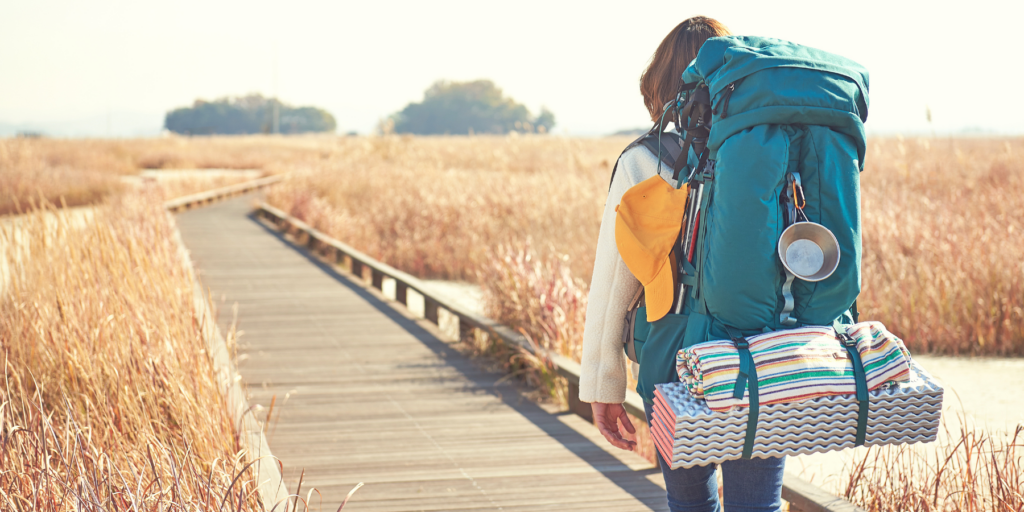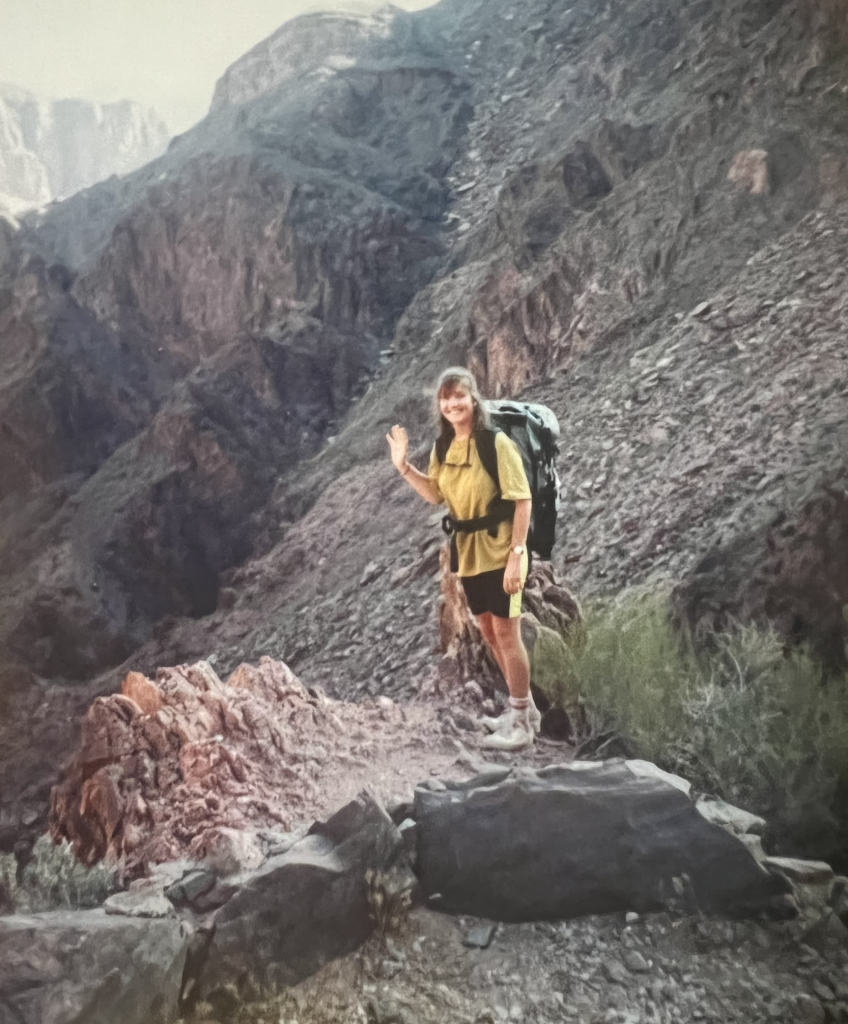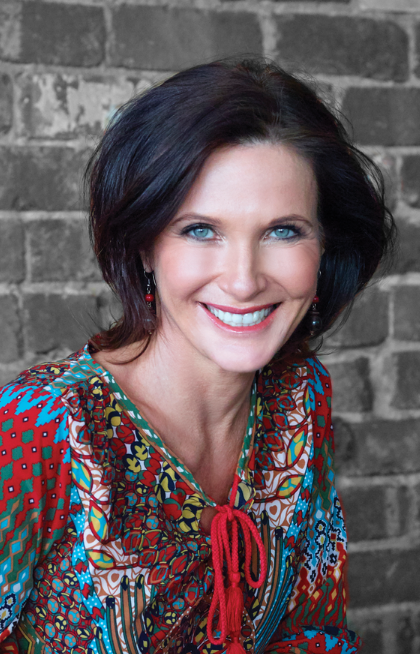Get comfortable being uncomfortable

After graduating from university I moved back to my parents’ farm and worked two jobs for six months until I’d saved up enough to buy an around-the-world airfare.
Then off I set. No cell phone. No credit card. Just a handful of traveler’s checks (remember them?) and a cassette tape to record updates to mail home to Mum (which meant they were always old news by the time they arrived). But such were the times. International phone calls were expensive and I wanted my money to take me as far as it could.
My courage had to do the same thing.
That trip required breaking ranks with my comfort zone daily.
Many times, I pined for the familiarity of home; for familiar faces and food and family. But my curiosity to explore the world and learn how people ‘did life’ in places far from my rural Aussie roots fueled me forward.
During that first big, year-long adventure, the only time I stayed more than a few days in the same place was working in a pub in central London. But even that ended after two weeks when the manager, whom in hindsight I realize was suffering from mental illness and addiction, kicked me onto the cold streets of London at 2 am in the morning. After finding a phone booth, I called a friend of my mother – Sister Eileen, a Catholic nun, who was working in a parish north of London. And so, I added a week living with two priests and one nun to my ‘experience chest’.
Clearly, not all my experiences were fun. But that year of choosing courage over comfort taught me many things. About myself. About the world. About the human condition. In particular, we human beings are far more alike than we are different.

Hiking up from the bottom of the Grand Canyon after an uncomfortable night sleeping on the canyon floor (May 1990)
Sure, we may speak different languages, eat different foods and live out different cultural values and traditions but none of us are immune to fear and all of us long to belong – to seek approval and avoid situations that risk us feeling bad about ourselves. Yet hand-in-hand with that primitive desire for self-protection and status-seeking, is the ability to defy the voice of our inner ‘Chicken Little’, to pursue the path of growth over comfort, and risk the uncomfortable emotions required to forge a more meaningful life. In short, to live with courage.
Courage is not a virtue endowed on the lucky few. It is a learnable skill and like all skills – from tying your laces to baking soufflé – it strengthens with practice.
Sure, some people have a higher risk tolerance than others. Not everyone wants to travel through foreign lands, jump out of a plane from 5,000 feet, climb a mountain or lead a multi-million dollar business. Yet courage is not some virtue endowed on the lucky few. Far from it. Rather it is a learnable skill. And like all skills – from learning how to tie your laces to bake souffle – it strengthens with practice.
What’s more, every time you actively choose not to let your fear of feeling uncomfortable keep you from taking action to create the outcomes you want (or to change the circumstances you don’t want) you ‘train the brave’ and build your courage muscles for even greater endeavors.
I have the privilege of working with senior leaders who have to navigate a complex web of risks every day. The most exceptional have developed the emotional mastery required to resist the urge to play it safe. They are not governed by their fears but rather they use their fear to help them take smarter risks, not just safe ones. They know that leaning into their fear and embracing uncomfortable emotions is a prerequisite of leadership. To quote Sid Banks, “If the only thing people learned was not to be afraid of their experience, that would change the world.”
The more often you do the uncomfortable, the more comfortable it gets.
Not all growth occurs in the sunlight. More often, our growth occurs when we find ourselves in difficult times that compel us to dig deep and discover new depths of resilience and courage. Like on that night I found myself cold, uncomfortable and without anywhere to sleep on the streets of London. It was anything but comfortable – physically or emotionally – but it taught me that I no matter what challenge I face, I have the internal resources to rise above. More so, that uncomfortable emotions are just that. Emotions. Some are nice. Some aren’t. As Susan Davidds says, “Emotions are data, not directives.”
Of course your brain is programmed to have you think otherwise.
To turn your forecasts into’ fear-casts’.
To focus more on what you don’t want than on all that you do want.
To rationalize the status quo.
To discount the ‘timidity tax’ of playing safe.
But as I’ve seen play out time and time again, comfort has a shelf life.
Comfort doesn’t stay comfortable forever
The consequences of avoiding potentially uncomfortable situations are rarely dramatic or immediate. But they should not be underestimated. Ever.
Sure, the gravitational pull toward the comfort and security of the status quo will always be hard. But learning how to fully feel the uncomfortable emotions we are wired to avoid is a profound act of personal liberation.
To that end, if there was ever a time to start acting with the courage you’ve admired in others it is now. Ask yourself
What would I do today if I were being truly courageous?
Chances are it will not be the most comfortable path in the short term. But take a step toward it anyway. Then tomorrow, another. Those uncomfortable emotions will pass. Regret rarely does.
As I learned that night on the London streets, we are braver than we know and can handle more than we think. So go on, be brave. Your future is riding on it.
Listen to Margie’s new “Take Courage!” series on her Live Brave Podcast. It will feature interviews with leaders and luminaries including General Stanley McChrystal, Jim Kouzes, Harvard’s Amy Edmonson and others.



